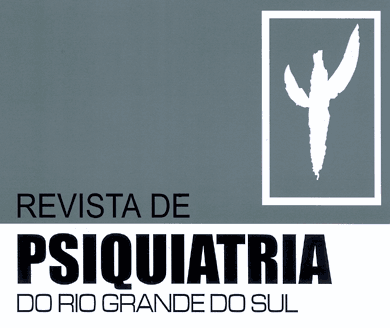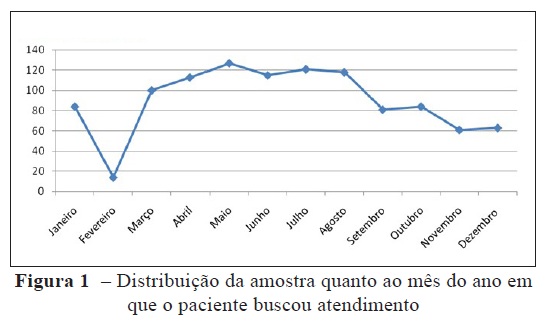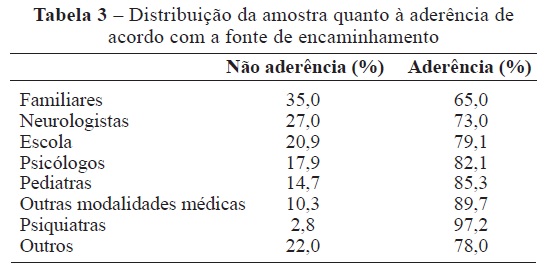INTRODUCTION: The high prevalence of interruptions in the early stages of psychotherapeutic treatment has been shown in national and international studies. Studies conducted with adults have demonstrated association between social, demographic, and clinical characteristics and adherence/non-adherence to psychotherapy; however, literature focused on children is scarce. OBJECTIVE: To assess associations between social, demographic, and clinical variables and adherence/non-adherence to treatment in child psychoanalytic psychotherapy. METHOD: This is a retrospective study based on the analysis of medical records of all children who received treatment at two psychological clinics in Porto Alegre, southern Brazil, between 1979 and 2007. RESULTS: A total of 2,106 records were analyzed, and 1,083 children were included in the final sample. Of these, 21.5% did not adhere to treatment. The variable referral source was associated with the outcome, i.e., referral to psychotherapy by psychiatrists was a protective factor to non-adherence to treatment, whereas referral by the family was a risk factor for non-adherence. CONCLUSION: Knowing the profile of children who do not adhere to psychotherapy enables therapists to establish intervention techniques in the early stages of treatment, so as to facilitate family adherence to child psychotherapy. Because dropout and non-adherence to therapy have different predictive factors, they should be considered as distinct phenomena by clinicians and investigators.
Psychotherapy; child; patient dropout; treatment refusal; ithholding treatment




